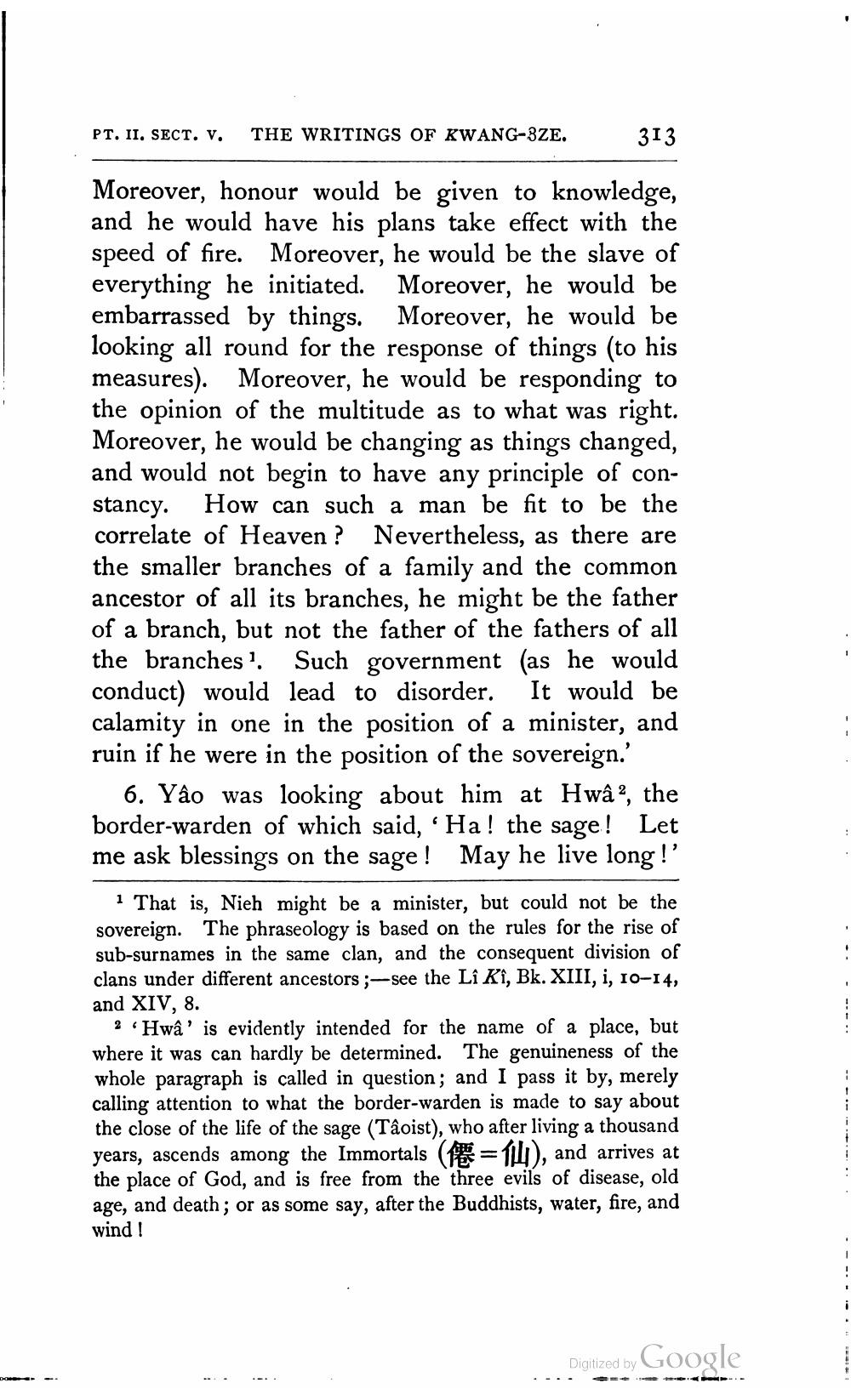________________
PT. II. SECT. V.
THE WRITINGS OF KWANG-BZE.
313
Moreover, honour would be given to knowledge, and he would have his plans take effect with the speed of fire. Moreover, he would be the slave of everything he initiated. Moreover, he would be embarrassed by things. Moreover, he would be looking all round for the response of things (to his measures). Moreover, he would be responding to the opinion of the multitude as to what was right. Moreover, he would be changing as things changed, and would not begin to have any principle of constancy. How can such a man be fit to be the correlate of Heaven? Nevertheless, as there are the smaller branches of a family and the common ancestor of all its branches, he might be the father of a branch, but not the father of the fathers of all the branches'. Such government (as he would conduct) would lead to disorder. It would be calamity in one in the position of a minister, and ruin if he were in the position of the sovereign.'
6. Yâo was looking about him at Hwâ?, the border-warden of which said, Ha! the sage! Let me ask blessings on the sage! May he live long!'
1 That is, Nieh might be a minister, but could not be the sovereign. The phraseology is based on the rules for the rise of sub-surnames in the same clan, and the consequent division of clans under different ancestors ;-see the Li Ki, Bk. XIII, i, 10-14, and XIV, 8.
2. Hwâ' is evidently intended for the name of a place, but where it was can hardly be determined. The genuineness of the whole paragraph is called in question; and I pass it by, merely calling attention to what the border-warden is made to say about the close of the life of the sage (Taoist), who after living a thousand years, ascends among the Immortals (P =TLI), and arrives at the place of God, and is free from the three evils of disease, old age, and death; or as some say, after the Buddhists, water, fire, and wind!
Digitized by Google




